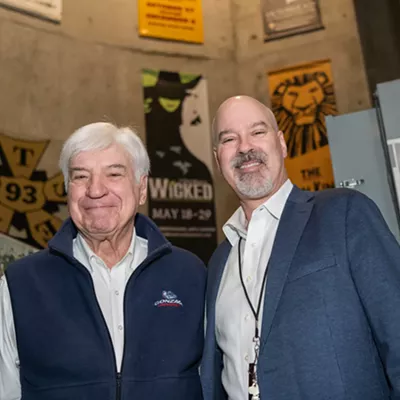With two new biographies just out, Clarence Darrow is back in the public eye — and right on time, as America is simmering in that age-old cauldron of labor versus capital. Although best known for his work in the Scopes trial, most of his more than 2,000 cases were spent defending workers’ rights.
And during the Gilded Age, a century ago, workers needed help — factory doors were often locked during work hours, there were no child-labor laws, and strikes were routinely squashed by National Guard units or private detectives hired by owners. Darrow, the first celebrity lawyer, used the press to make sure that many of his cases were covered nationally, leading to outrage over practices that inspired sweeping labor reforms.
According to his biographers, Darrow always saw the law as a fight between the rich and the poor. So what would he make of a labor struggle between the super-rich and the obscenely rich? That’s exactly what America is in for, as our wildly popular professional sports leagues, the NBA and NFL, are in the early stages of major disputes between team owners and players. The unemployment bug could be hitting your favorite professional athlete soon. Entire seasons may be lost.
At stake is money, of course — billions and billions of dollars. Owners in both leagues want players to take a pay cut, and there is evidence that business has been tough (although unlike the NBA, the NFL has yet to open its books to players). For America, is it a case study in labor relations through a fun-house mirror? Or are there elements of this fight that can resonate across society? Like middle-class workers, the players see that the economy is retracting, and they understand they will need to make sacrifices. And also like workers who see corporate profits at all-time highs (and, no, they’re still not hiring), the players have to wonder how much of the owners’ sob stories are a bluff.
As two of the strongest unions anywhere, the NBA and NFL players don’t need a Clarence Darrow. They’ll be fine. But as we watch it all unfold, we all could learn something about how we, as a nation, should share sacrifice in these tough times — and how we should share success.
Darrow’s signature move was to turn his defense of one downtrodden individual into a prosecution of capitalism’s excesses. In many cases, America agreed with Darrow and judged big business to be at fault, leading Congress to fine tune the system. This summer’s fight may help reveal whether we have a system that needs adjusting again.
Ted S. McGregor Jr. is the Editor and Publisher of The Inlander.

























